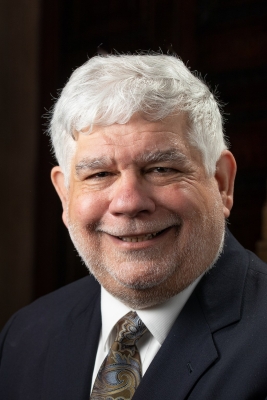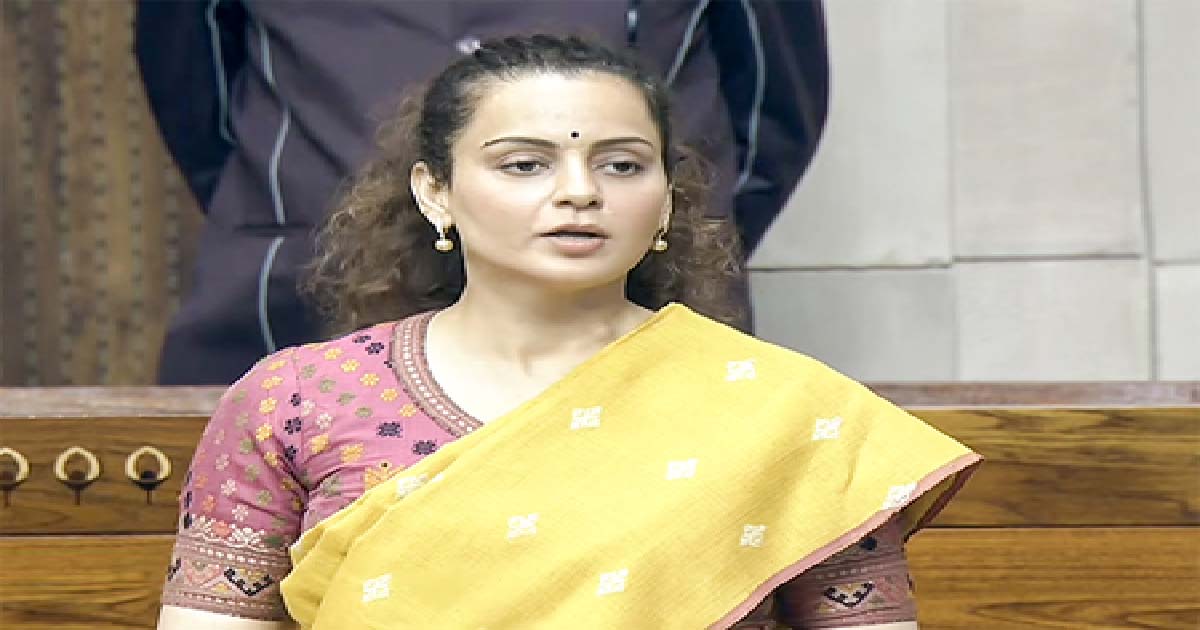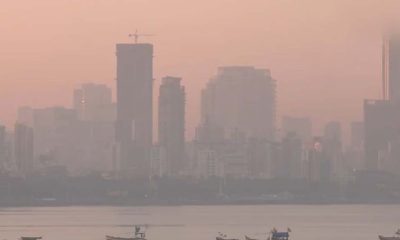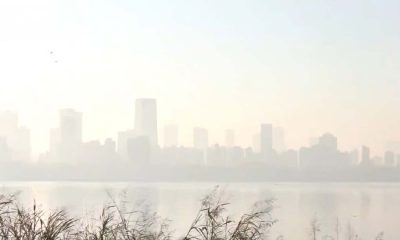International News
Top Indian-American editor steps down to save staff jobs

An Indian-American Pulitzer-winning editor of a prominent US publication has announced his decision to step down next year in an attempt to save the jobs of his staff members from impending company wide layoffs.
Peter Bhatia, 69, editor and vice president of Gannett-owned Detroit Free Press, announced his decision at a staff meeting held last week after the company reported back-to-back quarterly losses.
“We’re in a difficult period economically,” Bhatia was quoted as saying in his newspaper, which employs a total of 110 people.
“The company is going through a layoff process and I essentially made the decision to lay myself off in the interest of saving other jobs. I do have other opportunities that will probably come to work out at some point,” he added.
“But if by getting my salary out of the budget it saves some jobs of people on the staff, I think that’s the right thing for the Free Press,” Bhatia, who will step down in January, said.
Bhatia, who hails from Lucknow, joined The Free Press in September 2017, after two years as editor and vice president of The Cincinnati Enquirer and cincinnati.com.
There are no reports of Bhatia’s replacement yet but the deadline for the newspaper staffers to volunteer for layoffs is next week, Detroit Free Press reported.
The staff layoffs are tentatively set to take effect January 18, 2023, the paper reported.
Meanwhile, journalists who worked with Bhatia over the years, took to Twitter to say that he stood for “quality journalism” and his quitting is a “big loss” and a “sad day” for Detroit Free Press.
“Turns out you can be an amazing journalist, win Pulitzers and keep your principles after all. Peter is one of the absolute best,” reporter Amber Hunt wrote.
“Tragic news for the Detroit Free Press. Peter was a big reason for my decision to work here. Nobody has championed newsroom diversity and acted on it as much as he has, or made sure his colleagues were in a good place. Truly a rare kind in leadership,” reporter Dana Afana tweeted.
A seven-time Pulitzer juror, Bhatia has led newsrooms that won 10 Pulitzer Prizes, including six in Portland.
He is the first journalist of South Asian descent to lead a major daily newspaper in the US, running The Oregonian from 2010 to 2014.
Bhatia graduated in 1975 from Stanford University with a B.A. in history and a double major in history and communication.
In 2020, he won the Ben Bradlee editor of the year award from the National Press Foundation.
Earlier this month, Gannett named him its 2022 top employee.
Crime
As drug net tightens, ISI and D-Syndicate push massive fake currency surge

New Delhi, Dec 10: With the Indian agencies cracking down heavily on the narcotics trade, Intelligence Bureau officials have warned about an uptick in the smuggling of fake currency notes. In the past two weeks, several operations have been carried out in various parts of the country in which fake currency rackets have been busted.
The fake currency mafia is controlled by the Dawood Ibrahim syndicate, which is based in Pakistan. While the syndicate is trying to find newer routes and partners to further the narcotics trade, it is also stepping up operations relating to fake Indian currency. The ISI needs funds to resurrect its terror groups, which were largely beaten down during Operation Sindoor.
The fake currency racket had taken a slight backseat for some years, but now there are full-fledged plans to resume operations on a very large scale. Malda in West Bengal remains the main hub for this racket in India. Now with an unfriendly regime in place in Bangladesh, the ISI sees an opportunity to scale up operations.
All the fake currency that is being printed in Pakistan is first routed into Bangladesh. The ISI finds no problem in routing fake notes into Bangladesh, as Islamabad and Dhaka have close ties today. The sea route has been opened up, and the visa process is much simpler for Pakistanis, and this is being taken advantage of by the ISI.
From Bangladesh, the operatives push the fake currency into Malda, following which it is circulated across the country. Officials report that apart from West Bengal, mini modules have been set up in various parts of the country. The notes are transported either from Malda or Murshidabad in West Bengal to the rest of the country.
An official said there has been an increase in such cases, as the ISI and D-Syndicate are pushing it massively. There is a desperate need for funds as the ISI is not only trying to revive terror groups in Pakistan, but is also creating another front in Bangladesh. It wants to engage India on both fronts, and hence the simultaneous push is being made, the official explained.
These gangs operating the racket in India have been coming up with various ways to push fake notes into the market. In Gujarat, a gang that was running a money-doubling scam was busted. It was found that victims were lured into the scheme, and they were given fake Indian currency. This gang was operating mainly in Gujarat and Maharashtra, the probe has revealed.
While the Bangladesh-West Bengal route is the primary one for this racket, there is also a fresh push to smuggle these notes through the UAE into Kerala. Over the years, Kasargod in Kerala has become a major hub for smuggling fake currency notes.
M.B. Moosa, Abdul Rahman, K.M. Hamza, Kallatra Abdul Ha Khader Haji, Irabhim Soopi, K.S. Abdullah, and Kadavath Atta are the ones who have been running this racket. The notes from Pakistan would reach these persons through the UAE route.
Officials say that the Kerala route is one of the hardest to control. There is a huge rush at the airports owing to the number of people visiting the Gulf nations. The ISI has taken advantage of the stress on the security mechanism at these airports in Kerala. Most of the time, these persons get away because the customs formations are understaffed. This makes checking everyone difficult.
Further, the detection has also become very difficult owing to the quality of the notes that are being printed. An Intelligence Bureau official said that the notes are printed in government printing presses in Lahore, Karachi, Quetta, Multan, and Peshawar. These are the same places where the official Pakistani Rupee is also printed. Hence, the quality of the Indian notes being printed in Pakistan is of very superior quality, and this is making detection a challenge, the officer explained.
The gravity of the problem in India, courtesy this fresh push by Dawood and the ISI, can be seen in a report published by the US State Department. “India faces an increasing inflow of high-quality counterfeit currency, which is produced primarily in Pakistan but smuggled to India through multiple international routes. Criminal networks exchange counterfeit currency for genuine notes, which not only facilitates money laundering but also represents a threat to the Indian economy,” the report says.
Business
India-Russia friendship steady like pole star amid global uncertainty: PM Modi

New Delhi, Dec 5: Hailing India-Russia ties, Prime Minister Narendra Modi on Friday said that the friendship between the two countries has remained like a pole star amidst the ups and downs faced by the world in the past 80 years.
While making a joint press statement with Russian President Vladimir Putin following their talks at the Hyderabad House in New Delhi on Friday, PM Modi said that the ties between two nations have stood the test of time and thanked Putin for his friendship and unwavering commitment to India while recalling the efforts made by the Russian leadership to elevate bilateral ties.
“Today, I am delighted to welcome President Putin to the 23rd India-Russia Summit today. His visit comes at a time when our bilateral relations are experiencing several historic milestones. 25 years back, President Putin laid the foundation for our strategic partnership. 15 years ago, in 2010, our partnership was granted the status of a Special Privileged Strategic Partnership. For the past two and a half decades, he (President Putin) has nurtured this relationship with his leadership and vision.
“His (President Putin) leadership, under all circumstances, has elevated our ties to new heights. I express my heartfelt gratitude to President Putin, my friend, for this deep friendship and unwavering commitment to India. The world has seen many ups and downs over the past eight decades. Humanity has faced many challenges and crises and amidst all this, the India-Russia friendship has remained like a pole star. This relationship, founded on mutual respect and deep trust, has always stood the test of time,” he added.
Recalling recent heinous terror attacks in both countries, PM Modi said that India and Russia have stood together in the fight against terrorism.
“Today we also discussed regional and global issues. India and Russia have long cooperated shoulder to shoulder in the fight against terrorism. Whether it’s the terrorist attack in Pahalgam or the cowardly attack on Crocus City Hall — the root of all these incidents is the same. India firmly believes that terrorism is a direct attack on the values of humanity and global unity against it (terrorism) is our greatest strength.”
PM Modi announced that India and Russia will cooperate to train Indian seafarers in polar waters. “We will now cooperate to train Indian seafarers in polar waters. This will not only strengthen our cooperation in the Arctic, but will also create new employment opportunities for India’s youth.”
Reiterating India’s stance on Ukraine conflict, he said, “India has advocated for peace in Ukraine from the very beginning. We welcome all efforts to find a peaceful and lasting solution to this issue. India has always been ready to contribute and will continue to do so.”
PM Modi also termed energy security as a strong and important pillar of India-Russia partnership. He stated that cooperation between India and Russia in civil nuclear energy has been crucial in realising shared clean energy priorities.
“Energy security has been a strong and important pillar of the India-Russia partnership. Our decades-old cooperation in civil nuclear energy has been crucial in realising our shared clean energy priorities. We will continue this win-win cooperation. Our cooperation in critical minerals is crucial to ensuring secure and diversified supply chains across the world,” stated PM Modi.
Earlier, taking the India-Russia Special and Privileged Partnership ahead, PM Modi warmly welcomed President Putin at the Hyderabad House to participate in the 23rd India-Russia Annual Summit.
With both countries sharing a longstanding and time-tested bond, the two leaders are holding comprehensive and detailed discussions aimed at further strengthening the bilateral relations.
International News
‘Govt follows protocol’: BJP respond after Rahul Gandhi remarks on Oppn-Putin meeting

New Delhi, Dec 4: After Congress MP Rahul Gandhi alleged that the Centre has been advising foreign delegations against meeting or interacting with the Leader of the Opposition (LoP) – a practice he said was followed during previous UPA and NDA regimes, ruling party leaders on Thursday rejected the claim, asserting that the “government follows due protocol” in all matters.
The startling charge by Rahul Gandhi, while speaking to reporters outside Parliament, comes hours ahead of Russian President Vladimir Putin’s two-day visit to India. His remarks are set to raise eyebrows in the political corridors and also set the stage for heated sparring between the BJP and Congress.
Rahul Gandhi said, “Meetings with the LOP take place with delegations coming from outside. It has been a long-held tradition and has always been done this way,” he said, while citing instances during Manmohan Singh and Atal Bihari Vajpayee governments.”
Speaking to Media, BJP MP Kangana Ranaut said, “These decisions are made by the government. Atal ji was a national asset, and the entire country was proud of him. He was a great patriot. I don’t know why Rahul Gandhi is not being allowed, but in my opinion, his commitment to the nation is questionable. His role in creating unrest and trying to divide the country raises doubts about his intentions. And if Rahul Gandhi is comparing himself to Atal ji, then I would suggest he join the BJP — only then could he become like him.”
BJP MP Bhim Singh said, “Why would the government stop him? He only creates chaos and does not speak where he is supposed to speak.”
Echoing a similar stance, BJP MP Brij Lal added, “The government follows protocol, and work will be carried out accordingly. Rahul Gandhi is only making this political.”
JD(U) leader K. C. Tyagi clarified, “The government does not decide such protocols. Visiting heads of state themselves decide whom they wish to meet.”
Union Minister Ramdas Athawale added, “Foreign leaders visit on the invitation of the ruling party or government. If President Putin wishes, Rahul Gandhi, as LoP, can meet him. The government has no role in that.”
-

 Crime3 years ago
Crime3 years agoClass 10 student jumps to death in Jaipur
-

 Maharashtra1 year ago
Maharashtra1 year agoMumbai Local Train Update: Central Railway’s New Timetable Comes Into Effect; Check Full List Of Revised Timings & Stations
-

 Maharashtra1 year ago
Maharashtra1 year agoMumbai To Go Toll-Free Tonight! Maharashtra Govt Announces Complete Toll Waiver For Light Motor Vehicles At All 5 Entry Points Of City
-

 Maharashtra1 year ago
Maharashtra1 year agoFalse photo of Imtiaz Jaleel’s rally, exposing the fooling conspiracy
-

 National News1 year ago
National News1 year agoMinistry of Railways rolls out Special Drive 4.0 with focus on digitisation, cleanliness, inclusiveness and grievance redressal
-

 Maharashtra1 year ago
Maharashtra1 year agoMaharashtra Elections 2024: Mumbai Metro & BEST Services Extended Till Midnight On Voting Day
-

 National News1 year ago
National News1 year agoJ&K: 4 Jawans Killed, 28 Injured After Bus Carrying BSF Personnel For Poll Duty Falls Into Gorge In Budgam; Terrifying Visuals Surface
-

 Crime1 year ago
Crime1 year agoBaba Siddique Murder: Mumbai Police Unable To Get Lawrence Bishnoi Custody Due To Home Ministry Order, Says Report






















